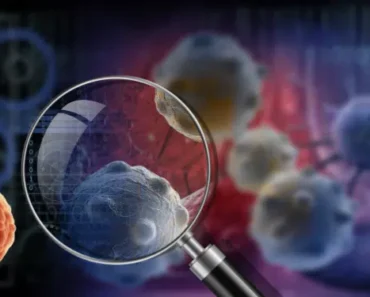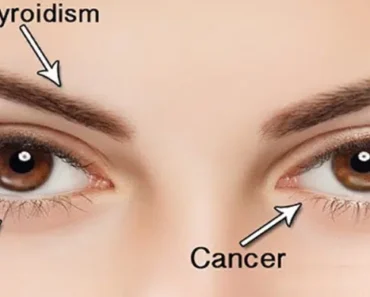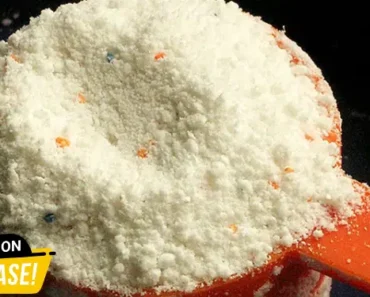Beetroot (Beta vulgaris), also known simply as beets, has long been valued for its earthy flavor and deep crimson color – but its real magic lies in its remarkable health benefits.
Often considered a superfood, beetroot is packed with essential nutrients, antioxidants, and natural nitrates that may help prevent and manage a range of diseases.
From supporting heart health to improving brain function and even offering anti-cancer potential, beetroot’s impact on the human body is nothing short of extraordinary.
Nutritional Profile of Beetroot
Before diving into the diseases, it’s important to understand what makes beetroot such a powerhouse.
Key Nutrients (Per 100g Cooked Beetroot):
- Calories: 44 kcal
- Folate: 20% of the Daily Value (DV)
- Manganese: 14% DV
- Potassium: 9% DV
- Vitamin C: 6% DV
- Iron, magnesium, and phosphorus
- High in fiber, antioxidants (like betalains), and dietary nitrates
1. High Blood Pressure (Hypertension)
Beetroot is one of the most effective natural remedies for lowering high blood pressure.
How It Works:
Beets are rich in nitrates, which convert to nitric oxide in the body. Nitric oxide helps relax and widen blood vessels, improving blood flow and reducing pressure on artery walls.
Research:
Studies show that consuming beetroot juice can significantly lower systolic and diastolic blood pressure within just a few hours.
Tip: Drink 1 cup of fresh beetroot juice daily for heart health support.
2. Heart Disease
Heart disease is the world’s leading cause of death, but beetroot may offer powerful protection.
Benefits:
- Reduces inflammation and oxidative stress
- Improves blood vessel function
- Enhances circulation and lowers bad cholesterol (LDL)
- May reduce plaque formation in arteries
How to Use: Add raw beetroot to salads or smoothies, or roast slices with olive oil.
3. Anemia and Low Iron Levels
Beetroot is often recommended as a natural remedy for iron deficiency anemia, especially in women.
Why:
- Contains iron, folate, and vitamin C – three nutrients vital for red blood cell production and iron absorption
- Stimulates the regeneration of healthy blood cells
Tip: Combine beets with iron-rich foods like spinach and vitamin C sources like citrus to improve absorption.
4. Liver Disease (Fatty Liver, Hepatitis)
Beetroot is a natural liver cleanser that helps detoxify and support liver function.
How It Works:
- Contains betalains, antioxidants with powerful anti-inflammatory and detoxifying properties
- Stimulates glutathione production, a compound essential for liver detox
- Helps prevent fat buildup in the liver (non-alcoholic fatty liver disease)
Best Form: Fresh beetroot juice or beetroot powder mixed with water.
5. Type 2 Diabetes
Beetroot has a low glycemic index and offers several benefits for people with or at risk of diabetes.
Benefits:
- Slows down glucose absorption due to high fiber content
- Improves insulin sensitivity
- Reduces inflammation and oxidative stress, which are common in diabetic patients
Tip: Consume boiled or roasted beetroot in moderate portions to avoid blood sugar spikes.
6. Chronic Inflammation (Arthritis, IBD, etc.)
Many chronic diseases, including arthritis and inflammatory bowel disease, stem from long-term inflammation.
Why Beetroot Helps:
- Rich in betalains, known for their anti-inflammatory properties
- Contains polyphenols and flavonoids that reduce inflammation markers like CRP (C-reactive protein)
How to Use: Blend beetroot with turmeric and ginger for a powerful anti-inflammatory drink.
7. Cognitive Decline and Dementia
As we age, cognitive function naturally declines – but beetroot may help slow this process.
How:
- Improves blood flow to the brain, especially the frontal lobe responsible for decision-making
- Increases oxygen delivery to brain tissue
- Nitrates help enhance neural activity and connectivity
Study Insight: Older adults who drank beet juice before exercise showed improved brain performance on MRI scans.
8. Cancer Prevention
Beetroot’s vibrant red color comes from betalains, which are not just pigments – they have anti-cancer potential.
Anticancer Properties:
- Scavenges free radicals and protects DNA
- Inhibits growth of certain cancer cells in lab studies (e.g., colon, breast, prostate)
- Enhances the effect of chemotherapy drugs (in some studies)
Note: While beetroot is not a cure, it may be a valuable complementary therapy.
9. Digestive Disorders (Constipation, Bloating, IBS)
Beetroot supports gut health and digestion in several ways.
Digestive Benefits:
- High in soluble and insoluble fiber to improve bowel regularity
- Supports healthy gut bacteria
- Acts as a natural mild laxative
- Reduces symptoms of bloating and constipation
Tip: Grated raw beetroot with yogurt makes a great digestive aid.
10. Erectile Dysfunction (ED) and Sexual Health
Poor blood circulation is a common cause of erectile dysfunction. Beetroot helps by enhancing blood flow through nitric oxide production.
Added Benefits:
- Improves libido and stamina
- Enhances vascular function
- May support testosterone levels indirectly by boosting circulation
How to Use: A daily glass of beetroot juice or smoothie can be a natural way to support sexual health.
11. Exercise Fatigue and Muscle Recovery
Beetroot is popular among athletes for boosting performance and reducing recovery time.
Performance Perks:
- Increases endurance and oxygen efficiency
- Reduces muscle soreness
- Enhances mitochondrial efficiency, helping muscles work better
When to Use: Consume 2–3 hours before exercise for optimal results.
12. Obesity and Metabolic Syndrome
Beetroot can aid in weight management and fat loss as part of a healthy diet.
Benefits:
- Low in calories but nutrient-dense
- High in fiber, which promotes satiety and reduces cravings
- Helps control blood sugar and cholesterol levels
- Supports liver detoxification, important for fat metabolism
Tip: Try beetroot smoothies with lemon, cucumber, and mint for a metabolism-boosting drink.
How to Incorporate Beetroot Into Your Diet
- Raw: Shred into salads or blend into smoothies
- Cooked: Roast with olive oil and herbs, boil, or steam
- Juiced: Mix with carrots, apples, or citrus for a delicious drink
- Powdered: Add to water, tea, or pre-workout smoothies
- Pickled: Preserved beets can be a tasty and gut-friendly side
Note: Beets may cause your urine or stool to appear pink or red – this is harmless and known as beeturia.
Safety and Side Effects
While beetroot is generally safe, keep in mind:
- Kidney stones: Beets are high in oxalates, which may contribute to kidney stone formation in sensitive individuals.
- Beeturia: Reddish urine or stool is harmless but can be alarming.
- Blood pressure medication: Beetroot may enhance the effects – consult your doctor if you’re on BP meds.
Beetroot is more than just a vibrant vegetable – it’s a potent healer backed by science.
Its high nitrate content, antioxidant power, anti-inflammatory properties, and nutrient density make it effective in helping manage and prevent a wide array of diseases.
Whether you’re fighting high blood pressure, liver problems, or chronic inflammation, or just want to improve your energy, beetroot deserves a spot in your daily diet.

 Disclosure: Every piece of content is reviewed, fact-checked, and edited by these editors to confirm that all quality standards are met. Read Our Editorial Guidelines Policy.
Disclosure: Every piece of content is reviewed, fact-checked, and edited by these editors to confirm that all quality standards are met. Read Our Editorial Guidelines Policy.






